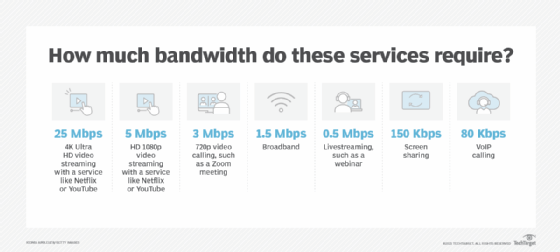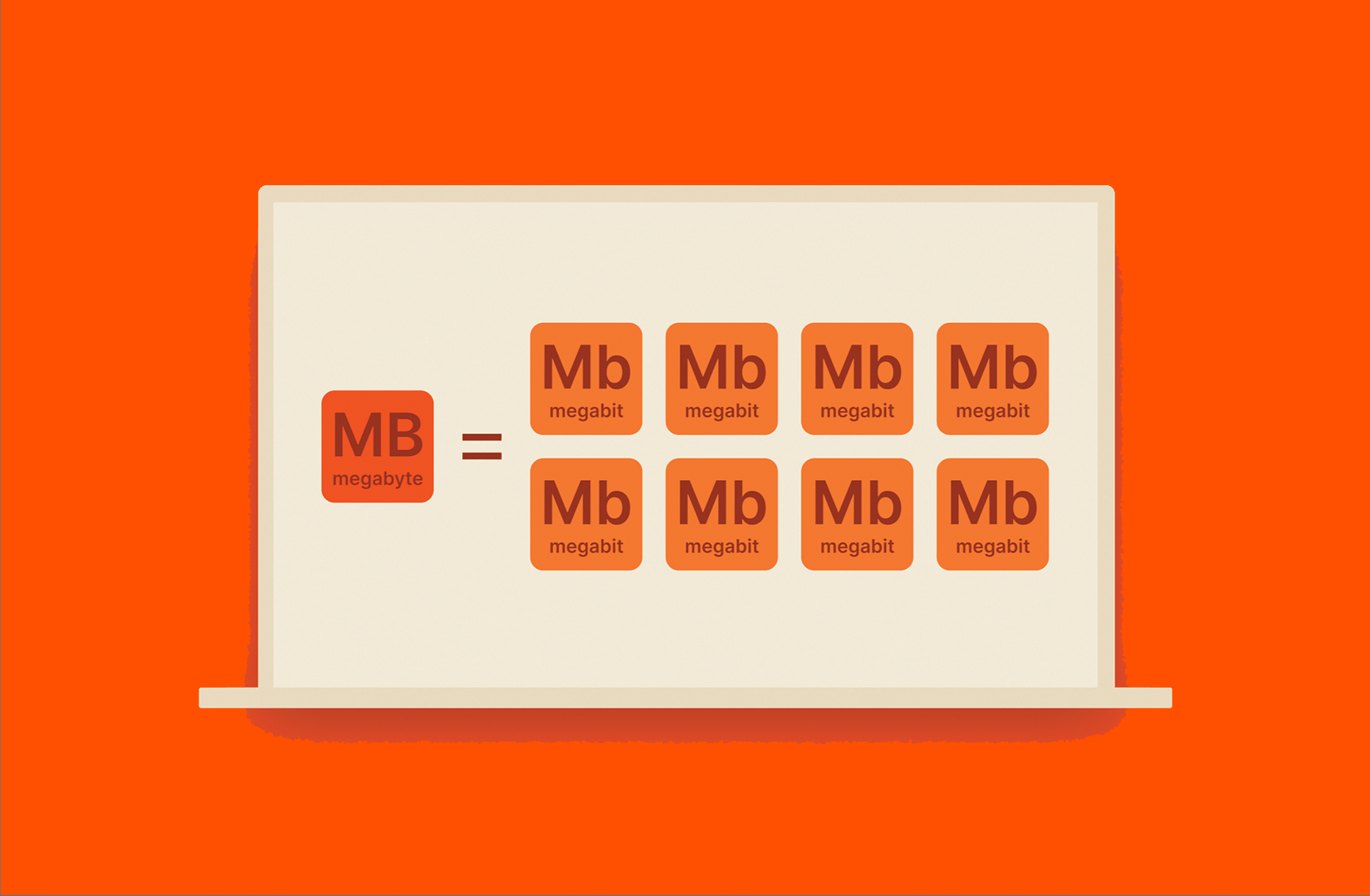Demystifying Megabits Per Second: A Guide to Picking the Right Internet Plan
Comprehending the concept of megabits per second (Mbps) is important when picking a net plan that straightens with your details needs. As the step of information transmission rate, Mbps plays a substantial role in establishing just how successfully your house can take part in different online tasks, from streaming high-def material to basic surfing. However, with the multitude of plans readily available, exactly how do you determine which one is right for you? The solution depends on a cautious assessment of your use patterns and assumptions, revealing insights that might not be immediately obvious.
Comprehending Megabits Per Second

To comprehend the importance of Mbps, it is essential to acknowledge that it reflects the maximum bandwidth readily available for data transfer. For instance, a plan supplying 100 Mbps permits the simultaneous transmission of data at that price, though actual rates might vary because of network congestion, distance from the service company, and the efficiency of your home network equipment.
Additionally, recognizing the distinction in between megabytes and megabits is essential. While megabits represent the speed of data transfer, megabytes (1 byte = 8 little bits) measure the size of files. As an example, downloading and install a 100 megabytes documents on a 100 Mbps link in theory takes about 8 secs, barring any type of disruptions.
Inevitably, picking a proper Mbps score based upon your home's internet use is vital for ensuring an adequate online experience.
Exactly How Internet Speed Affects Tasks
Internet rate plays a critical role in determining exactly how successfully people can engage in different online activities. Basic tasks like searching websites or examining e-mails commonly call for lower rates, frequently around 1-5 Mbps. Megabits Per Second.
On the internet video gaming, an additional popular task, also relies greatly on internet rate. A stable link of at the very least 15-25 Mbps can supply a competitive edge and decrease latency, which is crucial for real-time interactions. Meanwhile, video clip conferencing applications, progressively vital for remote work, take advantage of speeds of at least 3-8 Mbps for clear audio and video clip top quality.
In families with numerous users, simultaneous tasks can strain data transfer. In such cases, higher rates-- 50 Mbps or even more-- are recommended to suit varied requirements without a decrease in performance. Thus, comprehending the partnership in between internet rate and specific online tasks is vital for selecting a proper plan that satisfies individual or family demands efficiently.
Different Kinds Of Internet Plans
Choosing an appropriate internet plan needs an understanding of the various choices available out there. Internet service suppliers (ISPs) commonly use several kinds of plans, each accommodating different customer requirements and review preferences.
Broadband strategies are the most typical, supplying high-speed internet by means of cable or DSL links. These plans are suitable for households that involve in several online tasks simultaneously, such as streaming, video clip, and gaming conferencing - Megabits Per Second. Fiber-optic strategies, while less extensively readily available, use the fastest rates and the best efficiency, making them suitable for tech-savvy customers or those with considerable data transfer demands
Fixed wireless and satellite plans offer locations where conventional wired connections are inaccessible or unreliable. While they can be valuable for country individuals, they typically come with greater latency and reduced rates contrasted to broadband alternatives.
Mobile hotspot plans allow customers to access the internet with cellular networks, giving versatility for those that need internet on the go. Some ISPs use tiered plans with varying speeds and information caps, enabling customers to choose a strategy that straightens with their usage patterns and budget. Recognizing these various types of internet strategies is critical in making a notified decision.
Establishing Your Speed Requirements
Regularly assessing your speed requires is necessary for choosing an internet plan that fits your way of living. Understanding the requirements of your household or service can assist in selecting an ideal plan. Begin by assessing the number of gadgets that will be attached at the same time. Each tool takes in data transfer, and high use can lead to slow down performance.
Next, consider the tasks you involve in online. Fundamental tasks such as browsing and emailing usually need lower rates, around 1-5 Mbps. Nevertheless, streaming videos in hd, online pc gaming, redirected here or huge file downloads might require speeds upwards of 25 Mbps or even more.
In addition, consider the number of users. Megabits Per Second. A household with several individuals streaming content or pc gaming at the exact same time will certainly call for dramatically much more bandwidth than a single-user situation
Last but not least, remember that internet rates can be affected by elements such as network congestion and the quality of your router. By extensively analyzing your rate requires, you can make a notified decision, making certain that your internet plan he said straightens with your everyday usage and future demands.
Tips for Picking the Right Plan
Picking the ideal internet plan requires careful consideration of a number of key factors to guarantee it satisfies your demands. Initially, evaluate your use patterns-- whether you are streaming, pc gaming, or functioning from home-- since these tasks demand various transmission capacity levels. Usually, houses with high-bandwidth tasks or several individuals will benefit from higher-speed strategies.
Following, take a look at the information caps connected with numerous plans. Some companies impose limits on data use, which might result in surcharges or throttled speeds upon going beyond those limitations. Selecting a limitless data plan might be beneficial for heavy individuals.
Additionally, take into consideration the integrity of the company. Study consumer reviews and ask about the supplier's uptime and client service efficiency. If it does not have dependability or support., a cheaper plan might not be an excellent deal.
Lastly, examine marketing offers and contract terms. While initial costs can be enticing, understand the long-lasting expenses and whether the plan requires a prolonged contract. By considering these elements, you can make an educated decision that lines up with your internet needs and spending plan, ensuring you choose one of the most appropriate prepare for your household.

Final Thought
In final thought, understanding megabits per second (Mbps) is important for selecting a proper internet plan. Ultimately, selecting a plan with sufficient transmission capacity makes certain complete satisfaction and performance in navigating the digital landscape.
Recognizing the idea of megabits per second (Mbps) is important when choosing a web plan that lines up with your details needs. Hence, recognizing the relationship in between internet rate and certain online activities is essential for picking a proper plan that satisfies specific or household demands successfully.
Mobile hotspot prepares enable individuals to access the internet through mobile networks, giving flexibility for those that need internet on the go. Some ISPs supply tiered strategies with differing information and rates caps, allowing customers to select a plan that aligns with their usage patterns and budget.Frequently examining your rate needs is essential for selecting an internet plan that suits your way of living.